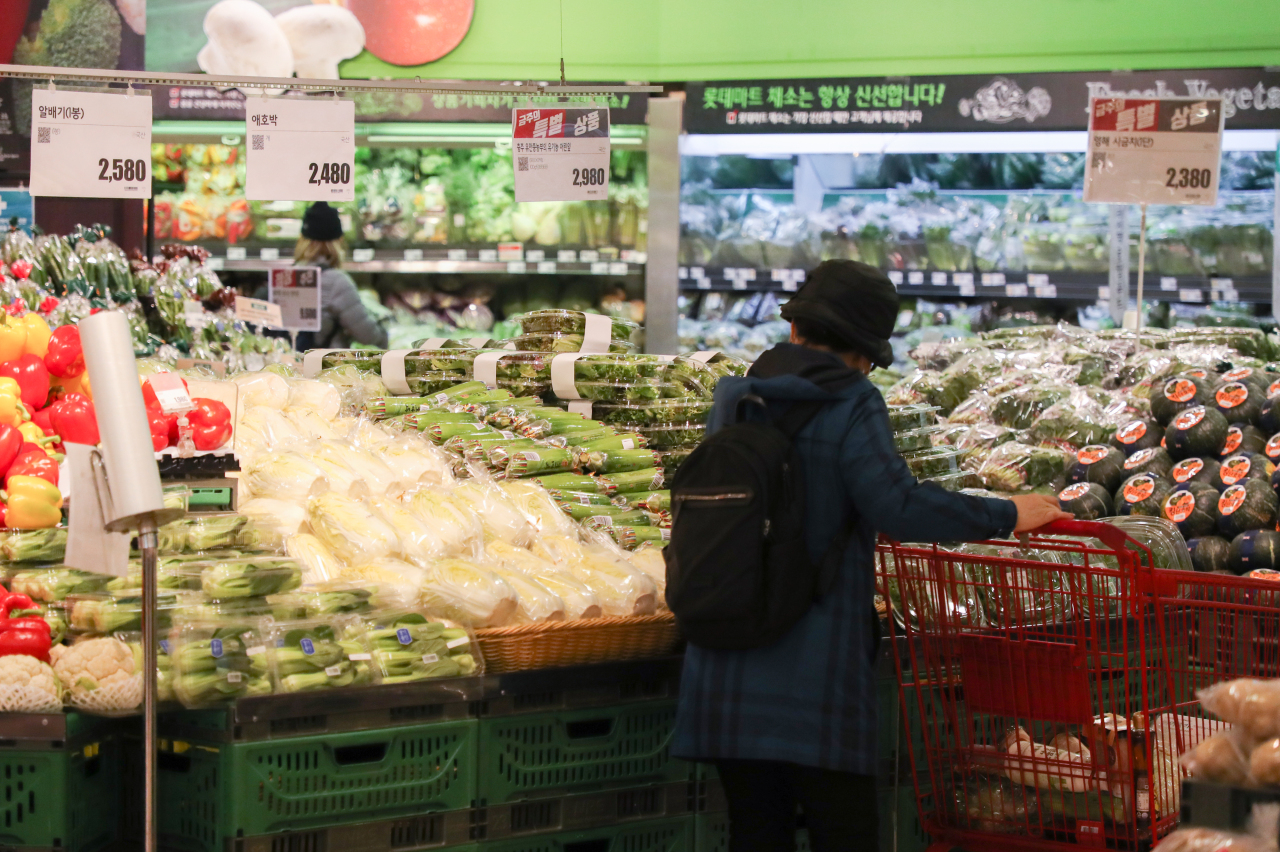 |
This file photo, taken March 18, 2021, shows a citizen looking at vegetables at a discount mart in central Seoul amid a sharp gain in prices of farm products. (Yonhap) |
South Korea plans to temporarily remove tariffs on some imported grains including corn in an effort to help rein in rising food prices, the finance minister said Wednesday.
The country plans to import edible corn and some grains without tariffs until the end of this year under the quota tariff system, according to Finance Minister Hong Nam-ki. Currently, duties of 3 percent are levied on imported corn.
"There is a limited chance that annual inflation will exceed (the central bank's target of) 2 percent, but consumer price growth is expected to temporarily pick up in the second quarter," Hong said at a meeting on the economy.
Hong said the government will additionally import eggs and release reserves of napa cabbage in a bid to help stabilize prices of agricultural and livestock products.
The country plans to bring in more than 25 million eggs this month in a bid to help curb rising prices of eggs caused by the outbreak of bird flu here.
South Korea has imported some 64 million eggs since late January in an effort to ease a supply shortage.
The country's consumer prices rose 1.5 percent on-year in March, the fastest gain in 14 months, on higher prices of farm and oil products.
The country's inflation remained subdued last year due to the fallout of the COVID-19 pandemic.
But consumer prices are under upward pressure as the Korean economy is on a recovery track, and food and oil prices have recently advanced.
A central bank report showed South Korean consumers in March expected inflation to grow 2.1 percent over the next 12 months, up from an estimate of 2 percent in the previous month.
"We will make efforts to manage price movements to prevent a temporary hike in consumer prices from sharply raising inflation expectations," First Vice Finance Minister Lee Eog-weon said at a press briefing.
The Bank of Korea (BOK) revised up its 2021 inflation outlook to 1.3 percent from its earlier estimate of 1 percent. (Yonhap)








